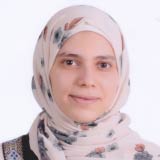About
MBZUAI's Center for Integrative Artificial Intelligence (CIAI) has been created to further develop an AI operating system (OS) based on the foundation of the CASL project.
The CIAI is led by MBZUAI President, Professor Eric Xing and center director Dr. Kun Zhang and has brought together a team of highly experienced senior systems and machine learning engineers, and researchers, who are passionate about building systems.
The aim of the center is to develop the next generation OS that can support easy composition, experimentation, and deployment of even the most advanced ML-pipelines such as building GPT3-like language models for new tasks, or full-stack AI systems for clinical management.
Objectives
An integrative AI system is not a monolithic blackbox, but a modular, standardizable, and certifiable assembly of building blocks at all levels: data, model, algorithm, computing, and infrastructure, etc. At CIAI, we seek to develop principled approaches including representations, optimization formalisms, intra- and inter-level mapping strategies, theoretical analysis, and production platforms for optimal and potentially autonomous creation and configuration of AI solutions at ALL LEVELS – data harmonization, model composition, learning to learn, scalable computing, and infrastructure orchestration.
We believe machine learning at all levels is a necessity, not just a preference, toward industrializing AI that can be considered transparent, trustworthy, and cost effective.
Research
Publishing
- Hu and E. P. Xing, Panoramic Learning with A Standardized Machine Learning Formalism,arXiv 2108.07783
- A. Qiao, S. K. Choe, S. J. Subramanya, W. Neiswanger, Q. Ho, H. Zhang, G. R. Ganger, and E. P. Xing, Pollux: Co-adaptive Cluster Scheduling for Goodput-Optimized Deep Learning, The 15th USENIX Symposium on Operating Systems Design and Implementation, 2021 (OSDI '21). (Recipient of the Jay Lepreau Best Paper Award)
- X. Zheng, B. Aragam, P. Ravikumar, and E. P. Xing, DAGs with NO TEARS: Continuous Optimization for Structure Learning, Advances in Neural Information Processing Systems 32. (NeurIPS 18)
- M. Al-Shedivat, J. Gillenwater, E. P. Xing, A. Rostamizadeh, Federated Learning via Posterior Averaging: A New Perspective and Practical Algorithms, Proceedings of 9th International Conference on Learning Representations, 2021. (ICLR '21).
- M. Al-Shedivat, A. Dubey, and E. P. Xing Contextual Explanation Networks, Journal of Machine Learning Research, 21 (194), 1-44, 2020.
- K. Kandasamy, K. Vysyaraju, W. Neiswanger, B. Paria, C. Collins, J. Schneider, B. Poczos, and E. P. Xing Tuning Hyperparameters without Grad Students: Scalable and Robust Bayesian Optimisation with Dragonfly, Journal of Machine Learning Research, 21 (81), 1-27, 2020.
- Xie, B. Huang, Z. Chen, Y. He, Z. Geng, K. Zhang, "Estimation of Linear Non-Gaussian Latent Hierarchical Structure," International Conference on Machine Learning (ICML) 2022
- Huang, C. Lu, L. Leqi, J. M. Hernandez-Lobato, C. Glymour, B. Schölkopf, K. Zhang, "Action-Sufficient State Representation Learning for Control with Structural Constraints," International Conference on Machine Learning (ICML) 2022
- Huang, F. Feng, C. Lu, S. Magliacane, K. Zhang, "AdaRL: What, Where, and How to Adapt in Transfer Reinforcement Learning," International Conference on Learning Representations (ICLR) 2022(spotlight)
- Yao, Y. Sun, A. Ho, C. Sun, K. Zhang, "Learning Temporally Latent Causal Processes from General Temporal Data," International Conference on Learning Representations (ICLR) 2022
- Adams, N. R. Hansen, K. Zhang, “Identification of Partially Observed Linear Causal Models: Graphical Conditions for the Non-Gaussian and Heterogeneous Cases,” Conference on Neural Information Processing Systems (NeurIPS) 2021
- Xie, M. Gong, Y. Xu, and K. Zhang, “Unaligned Image-to-Image Translation by Learning to Reweight,” In Proceedings of International Conference on Computer Vision (ICCV) 2021
- Xie, R. Cai, B. Huang, C. Glymour, Z. Hao, K. Zhang, "Generalized Independent Noise Condition for Estimating Linear Non-Gaussian Latent Variable Causal Graphs," Conference on Neural Information Processing Systems (NeurIPS) 2020(spotlight).
- B. Huang, K. Zhang, J. Zhang, J. Ramsey, R. Sanchez-Romero, C. Glymour, B. Schölkopf, "Causal Discovery from Heterogeneous/Nonstationary Data," Journal of Machine Learning Research (JMLR), 2020
Projects
The core of an AI application is a multi-stage program, referred to in industry parlance as a "pipeline". Pipelines are composed of machine learning model code, as well as non-model code used for supporting tasks like data preprocessing, augmentation, post-processing, retrieval, ranking, and serving of inference results. This project investigates multi-stage black-box methods and systems for Learning To Learn in AI pipelines, in order to optimize for multiple simultaneous objectives including task performance, throughput, latency, and cost of compute. The goal is to provide a one-stop system for automatic, hands-free optimization of AI applications according to engineering and business needs.
EXPLOREVacancies
CIAI at MBZUAI is looking for post-doctoral fellows in system ML, ML, causal representation learning, computational biology, computer vision, natural language processing, explainable AI, and other fields. Please send you CV to Guangyi.Chen@mbzuai.ac.ae if you are interested.
The center is always on the lookout for highly experienced senior systems and machine learning engineers and programmers. They must be passionate about building systems.
MBZUAI offers a highly competitive salary package and computing facilities, as well as freedom, collaboration, and opportunities to work with world-renowned faculty and students on a long-term basis.
Facilities
The CIAI has its own supercomputing cluster comprised of 64 GPU compute nodes (each with 4x A100 GPUs and Infiniband networking) and four high-capacity GPU nodes (each with 8x GPUs and Infiniband networking), for a grand total of 288 GPUs.
People
CIAI currently has more than 25 members including faculty, students, postdoctoral research fellows and research assistants.
Faculty

Professor Eric Xing
MBZUAI President

Kun Zhang
Center director and Associate
Professor of Machine Learning

Qirong Ho
Assistant Professor
of Machine Learning

Ph.D. students

Ding Bai
Master's students

Kirill Vishniakov

Munachiso Samuel Nwadike

Zhenhao Chen

Ashraf Haddad

Eman Hisham Zaki Al Suradi

Akbobek Abilkaiyrkyzy

Sarah Al Barri

Zhengqing Gao

Shunxing Fan

Boyang Sun

Kevin Michael Toner

Juwayni Macadato Lucman











